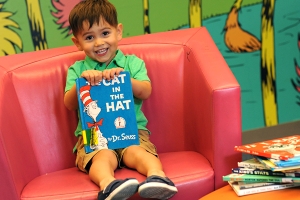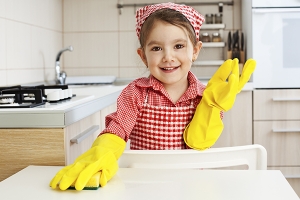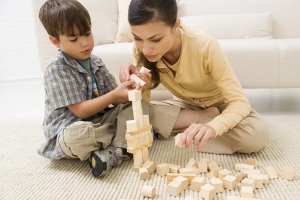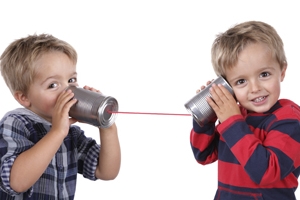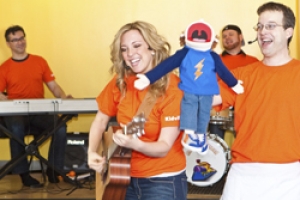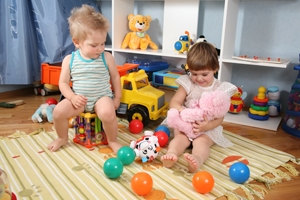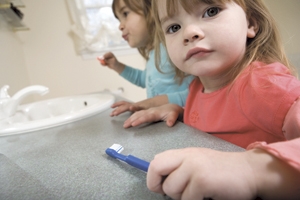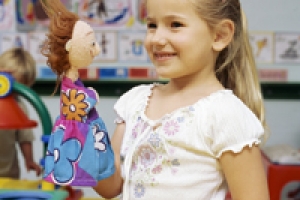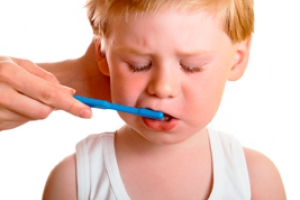
It is possible to raise kind, well-mannered children with no yelling, no spanking, and no time-outs. When I created the Privileges System three years ago, my daughter needed boundaries… fast. I always said, “I won’t have a brat,” but I had to admit that if I didn’t act soon, I would indeed have one. Now, I get compliments on her behavior, and though she’s not perfect, she is polite and respectful. The best part is that she even recognizes other children who need to use this system!
You can bring peace and harmony back into your home by using the Privileges System for Children. Here’s how it works, in 10 easy steps:
1. Ask your child, “Wouldn’t it be great if you got to do what you wanted and Mommy and Daddy didn’t have to yell anymore?” (The answer is quite likely to be, “Yes!”)
2. Each day, ask your child to choose approximately 5 - 8 privileges that he or she would like to enjoy. You write (or sketch, if your child is a non-reader) one privilege per sticky note and attach the sticky notes to a place that is easily visible to you and your child.
3. Any time the child engages in inappropriate behavior (whining, pouting, bossing, tugging, stalling, pestering, etc.), name the behavior and count. For example, “I hear you whining. I’m counting that as number one. If you continue to whine, I will continue to count. If I reach three, you will lose a privilege.” Only wait about ten seconds to count to the next number if the behavior does not improve. If the behavior does improve but reemerges later, start the counting over.
4. Remain calm and never try to talk your child into stopping the behavior. Calmly name the behavior, and then count. When you reach three (and you must, for the system to work), say, “You have reached number three. You have lost the privilege of _____ for today.” You choose the privilege that is to be “counted out.” Just because you are giving choices does not mean that you give up control of the system.
5. Once a privilege is “counted out,” it is highly likely that your child will react with tears, pleading, more whining, and whatever else is in his behavioral arsenal. If that happens, you may simply say, “I am sad, too, that you made the choice to continue that behavior. I was looking forward to watching you enjoy that privilege.”
6. Remove the sticky note representing the privilege that was “counted out” from its place and put it inside a kitchen cabinet, or somewhere else that is out of sight. That privilege is gone for today, but remember… tomorrow is another day.
7. If inappropriate behavior ensues following the loss of a privilege, simply name the behavior and count again. It is not unusual for a child to lose two or three privileges quickly when you first begin the system. Some parents choose to begin with more than five privileges if they anticipate their children will lose them quickly at first.
8. Once a privilege has been “counted out,” it is gone for that day. A child cannot earn back a privilege by being well-behaved. This is not a system of negotiation. It is important to remind your child that she will have the opportunity to choose that privilege again on another day. Say, “maybe on that day you will be able to make a better choice with your behavior and we will get to enjoy the privilege.”
9. When your child chooses privileges, be sure that they work for you. Don’t agree to a privilege that won’t fit into your schedule for the day. The Privileges System teaches parents and children to work as a team. If your child makes a suggestion that won’t work for one day, explain why another day might work better. You are the parent; you have veto power.
10. Go about your day and enjoy the privileges. When a privilege has been enjoyed, put the sticky note representing that privilege out of sight. Utilizing the sticky notes enables children to see the consequences of their actions, both favorable and unfavorable. If there are no privileges left and it’s only the middle of the afternoon, allow your child to choose several more privileges, but do not reinstate privileges that have been “counted out.”
The Privileges System fits your schedule and your children’s preferences. Privileges can be anything from a ride on daddy’s shoulders to ten minutes of your undivided attention. The beauty of this system is that it can be used for any age child, from preschoolers to teenagers. Sure, the privileges change over time, but the theory doesn’t. Acceptable behavior results in the enjoyment of privileges; unacceptable behavior results in the loss of privileges.
Don’t worry that you won’t be able to keep track of your counting or of how many privileges have been “counted out.” Guess who can help you with that? Your child! Children never lose count of their privileges. If you are using the Privileges System with more than one child, use different colored sticky notes and don’t allow one child to be the “score keeper” for another child. Everyone focuses on his or her own behavior.
And you, as the parent, get to focus on the fact that you have not yelled since you began using the Privileges System. You are no longer a yeller!
Congratulations! Your children and your vocal cords thank you. Now that you have committed to the Privileges System, you will see results in a very short time, maybe even in a matter of hours. Children enjoy being in control of their behavior and they love to choose their privileges.
If you have the determination and fortitude to really make a change, everyone wins. What do they get? Privileges. What do you get? Peace.
------------------------
Jennifer M. Koontz is a mother and an educator who has taught students of all ages, from preschool through college. She is the author of When Your Centerpiece is Made of Play-Doh and the Dog Has Eaten Your Crayons: A Mother’s Perspective on Parenting. For more information, visit www.facebook.com/jmkoontzforparents.



